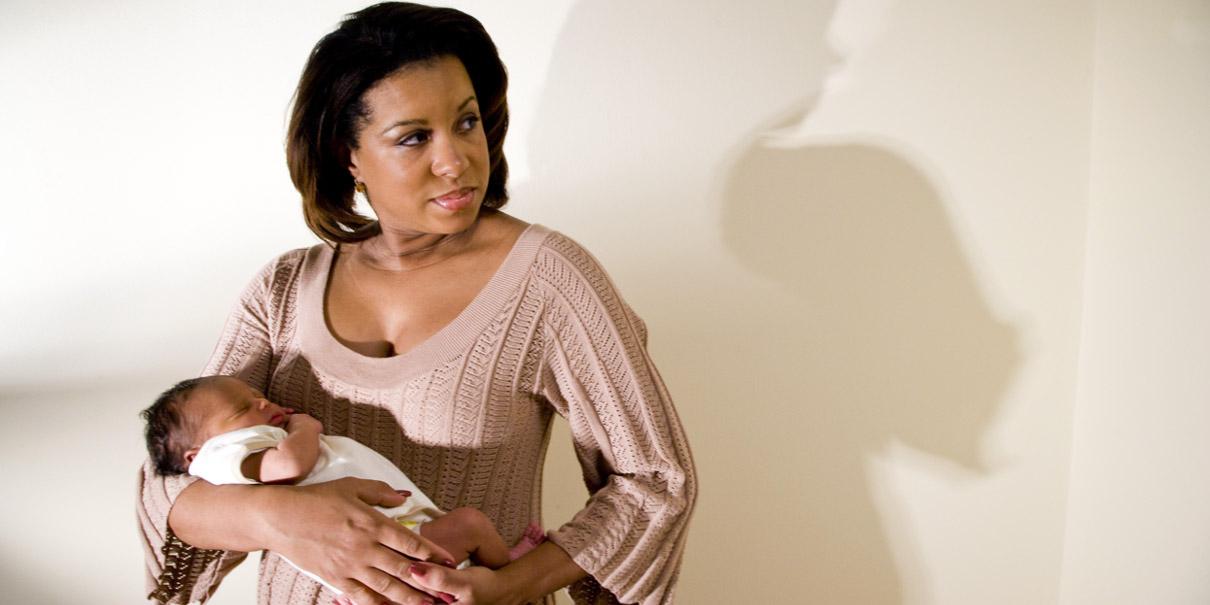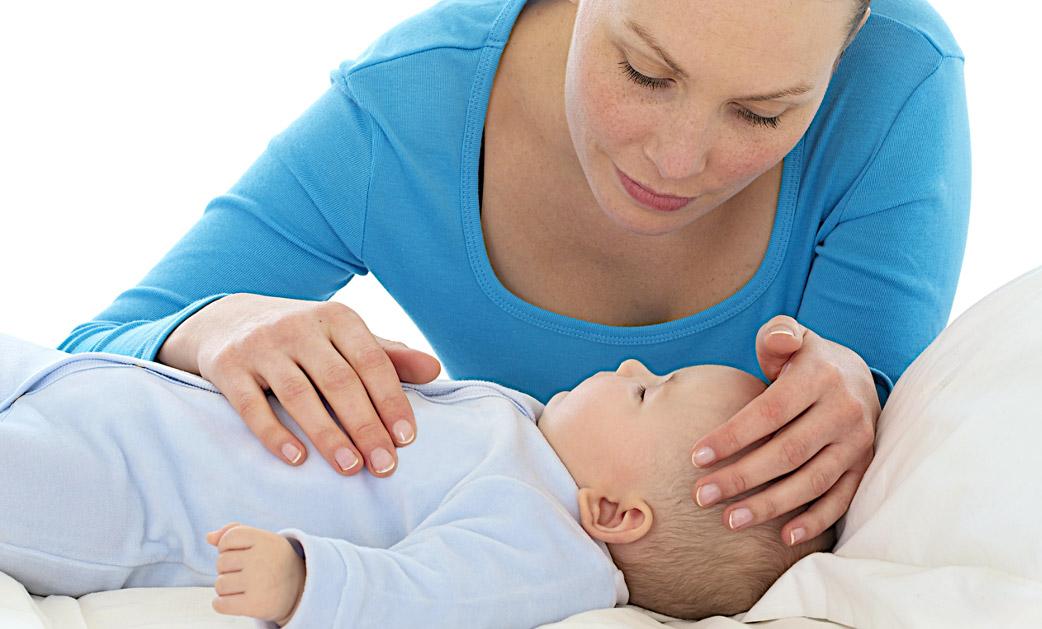Understanding the Baby Blues & Postpartum Depression
by Stefanie Zinchiak M.Ed.
Medically Reviewed by Dr. Linda Lemay M.D.

What is Postpartum Depression?
With the surge of hormones and emotions, up to 80% of new moms experience the “baby blues” a few days to a week or so after giving birth. Often times, this goes away after a few weeks. If feelings of sadness continue, you may be suffering from postpartum depression, which is a moderate to severe form of depression and affects 1 in 7 women. This type of depression can first appear days or even several months after giving birth.
It’s important to know that this condition does not indicate a weakness or implication of not being a good mother. Rather, it should be viewed as a potential negative side effect of childbirth.
And while the exact cause is unknown, it is assumed that drastic hormonal changes as well as environmental, physical and psychological changes such as lack of sleep, having less freedom and time, changes in lifestyle, etc., may all play a role in this condition.
Signs & Symptoms
Signs and symptoms vary and some that appear with less intensity may be common symptoms of baby blues. “Baby blues” is a normal adjustment period that will usually resolve on its own within a few weeks. Continuing signs or symptoms may indicate postpartum depression.
Any signs that last longer than two weeks or those that provoke thoughts of harming yourself or your baby should be addressed with your obstetrician or primary care physician right away.
- Mood swings
- Crying/Tearfulness
- Anxiety/Worry/Panic
- Sadness/Hopelessness
- Irritability and Anger
- Insomnia
- Changes in Appetite
- Intense Fatigue/Exhaustion
- Difficulty Bonding with Baby
- Withdrawal from Family & Friends
- Trouble Concentrating or Focusing
- Thoughts of Guilt
- Thoughts of Harming Yourself or Your Baby
According to the American Pregnancy Association, approximately 70-80% of all new mothers experience some negative feelings or mood swings after the birth of their child.
Coping with Postpartum Depression

In addition to seeking medical advice and guidance from your obstetrician or primary care doctor, there are several ways to help you cope:
Take Care of You: Baby is a priority, but so are you. Make sure you’re eating and sleeping well, and ask for support and help from family and friends. Consider hiring a night nurse or letting those you trust babysit for a few hours. Even a helping hand to fold laundry or cook a few meals will make a difference.
Be Open and Honest: There is no shame in how you feel. Open up to those around you and they’ll be more understanding and willing to help, or at least be there to provide emotional support. Also consider joining an online forum or new-mom group that will allow you to discuss similar feelings in a safe or anonymous setting.
Prevention
Certain factors, such as a history of depression or anxiety may increase the likelihood of developing postpartum depression. It’s important to inform your health care provider during pregnancy, so that you are monitored more closely.
While mild forms of depression can be managed with support groups, therapy, etc., sometimes your obstetrician will recommend an early postpartum checkup or may even recommend an antidepressant treatment immediately following delivery- or during pregnancy.
Postpartum Psychosis
Postpartum psychosis, understood as postpartum depression with psychotic features, is a rare but serious mental condition and typically develops within the first 2 weeks after delivery. Symptoms vary but may include extreme confusion and disorientation, hallucinations or delusions, paranoia and/or thoughts or attempts of harming yourself or your baby,
The key is seeking help immediately, to prevent a worsening condition and thoughts or behaviors that are life-threatening to yourself and your baby.
Where to Go
If you’ve already welcomed your baby, feel free to check out the resource links below for additional support. If you are still pregnant or looking to become pregnant, choose a hospital that meets the highest standard for obstetrics. The Women’s Choice Award’s America’s Best Hospitals for Obstetrics will help guide you.
“New moms have many choices when it comes to having their baby, so choosing the best birthing experience is right up there with choosing the best doctor. We’ve made it easy for moms to vet out the hospitals that are proven to deliver an outstanding experience,” said Delia Passi founder and CEO of the Women’s Choice Award.
Questions to Ask Your Doctor
Q: If I’m treated with antidepressant medication, how will this affect my baby and breastfeeding?
Q: What are the best coping mechanisms to combat this condition?
Q: What signs or symptoms should alert me to seek additional medical care?
Q: How can this condition affect my baby?
Resources:
America’s Best Hospitals for Obstetrics
Know Where to Go, Know What to Do
National Child and Maternal Health Education Program (NIH)
Postpartum Support International
Postpartum Progress
This content is for informational purposes only and is not intended to provide medical advice or to treat, diagnose, cure or prevent any disease or condition. Always seek the advice of your healthcare provider.
Sources:
http://www.mayoclinic.org/diseases-conditions/postpartum-depression/basics/symptoms/con-20029130
http://www.nlm.nih.gov/medlineplus/ency/article/007215.htm
